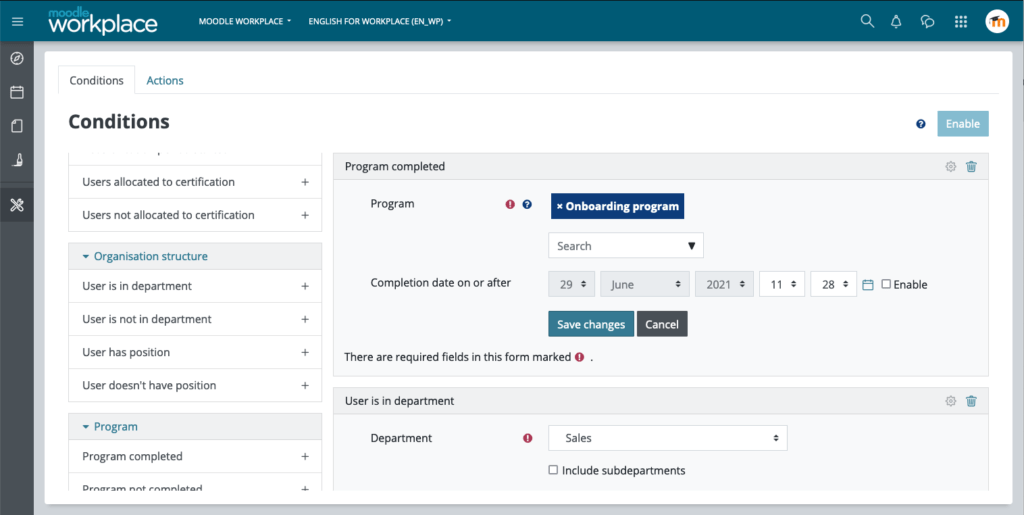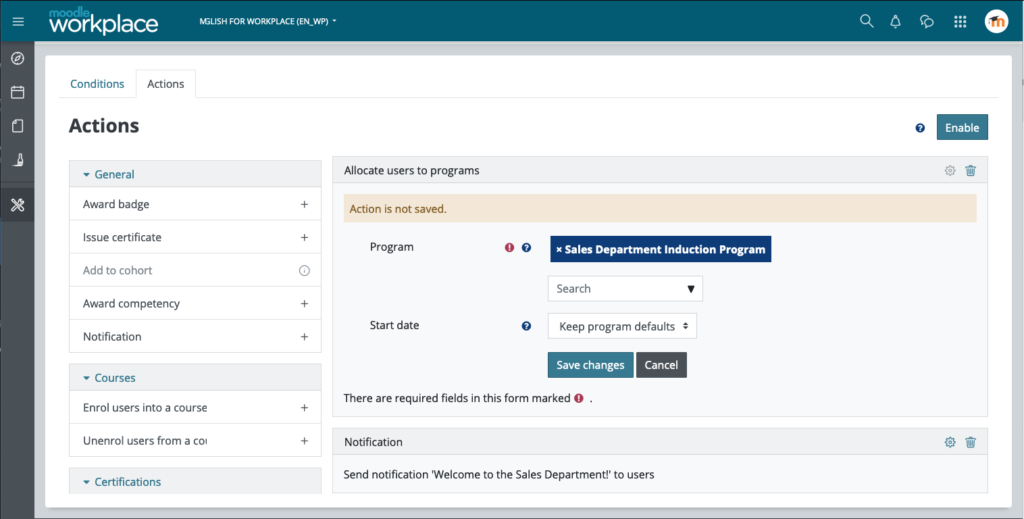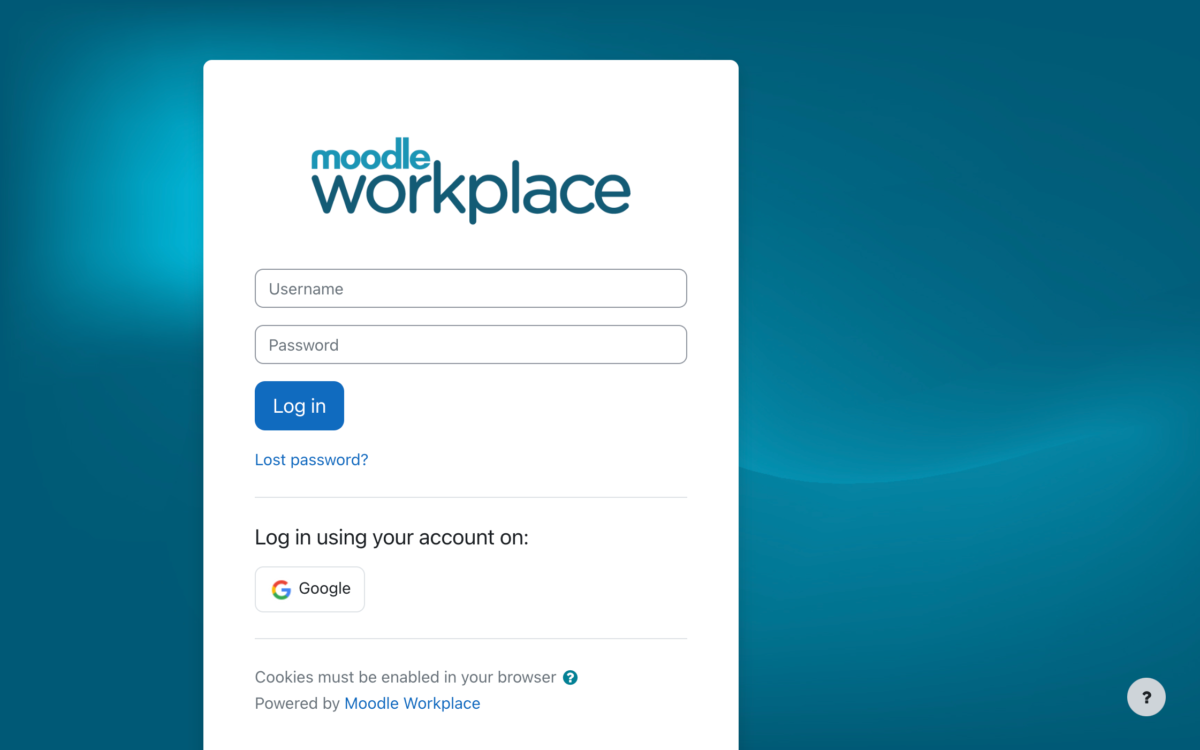Managing administrative tasks are a repetitive and time consuming aspect of managing organisational learning and development.
Staying up to date on the enrolment, progress, and completed training opportunities for users in several departments or developmental specialisation requires having the infrastructure to evaluate their progress individually, accommodate for their roles and career aspirations, and provide relevant coursework.
That’s where the dynamic rules in Moodle Workplace and automations can really cut down on admin time. Even though designing automations can require a bit of strategic thinking, Moodle Workplace can easily streamline them in a few clicks with dynamic rules.
An example of a ‘Course finished’ dynamic rule.
Condition: (a) “User has completed a course” AND (b) “the course has been completed before a certain Date” AND (c) “User works in a certain department”.
Actions: Enrol the user in the following course, Issue a certificate and Award the user a competency.
How about automating onboarding?
Dynamic rules can make it simple to have staff onboarded. In this example, HR can make sure that all new employees will have completed the General Onboarding Course before being enrolled in other training, sales in this example
Rule 1: Allocation to onboarding
- Conditions
- Users who are not allocated to ‘General Onboarding Course’
- Actions
- Allocate users to ‘General Onboarding Course’

Rule 2: Induction for Sales Department
- Conditions
- Users who have completed ‘General Onboarding Course’
- AND Users who are allocated to the Sales Department
- Action
- Enrol users to the ‘Induction for Sales Department Course’
- Send users a notification welcoming them to the course

If you want to learn more about how Moodle Workplace can streamline learning in your organisation, contact us.
Ideas from this article were originally published on moodle.com







